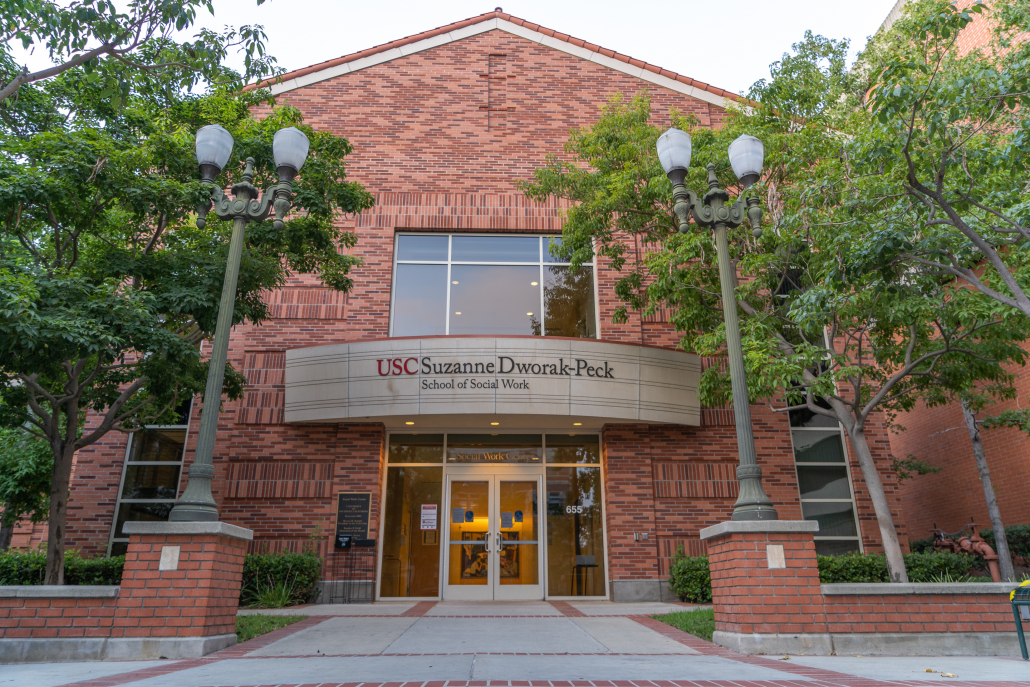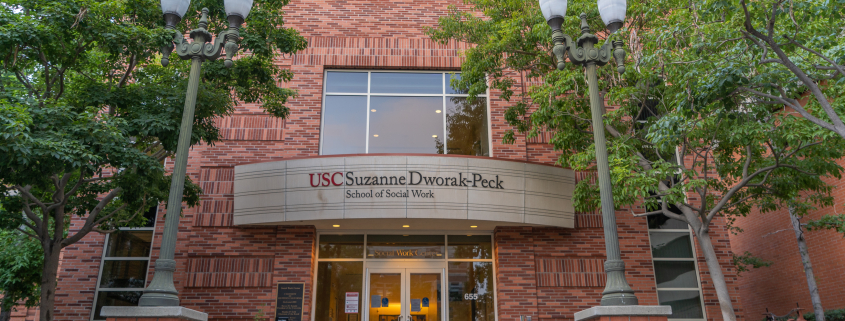School of Social Work launches new juvenile justice minor

The USC Suzanne Dworak-Peck School of Social Work launched a new social work and juvenile justice minor for Fall 2020, which covers 16 academic units and can be completed across the course of three semesters.
The minor’s curriculum is designed for students who are interested in broadening their understanding of community and support-based approaches to juvenile justice in the greater Los Angeles area. The minor includes classes such as “Institutional Inequality in American Political and Social Policy” and “Adolescent Gang Intervention” that aim to equip a new generation of social workers and policymakers with the skill set needed to address deep-seated failures in California’s approach to juvenile justice.
“The goal is to educate undergraduate students to become knowledgeable about the California Division of Juvenile Justice,” Monica Ellis, a senior executive director at the School of Social Work, wrote in an email to the Daily Trojan. “By doing so we hope our students will be empowered to be voices of underserved communities, creators of nonprofit programs and initiators of thought-provoking policy.”
Ellis and her team at the School of Social Work also plan to partner with nonprofit organizations and community-based youth programs in the greater L.A. area. Students will have the opportunity to work hands-on with these organizations and provide meaningful treatment and the necessary resources to ensure the healthy development of at-risk youth populations.
“We’re seeing how [the juvenile justice system] is incarcerating kids for their trauma,” said Robert Hernandez, a faculty member at the School of Social Work who helped spearhead the project.
“We have a whole host of expertise at the School of Social Work who have come together to see,” he said. “can we really shift the paradigm and look at how can we have social workers being engaged in the criminal justice system?”
The minor, which is open to all undergraduate students, is part of a broader effort on behalf of the School of Social Work to expand its undergraduate presence on campus. The hope, according to Hernandez, is to attract a diverse range of students with varying academic interests, career goals and skills.
One such student, Orlando Ambriz, a freshman majoring in psychology who is a U.S. military veteran, cites his own struggles with mental illness and his experiences growing up as his inspiration for enrolling in the juvenile justice minor.
“I grew up in Santa Ana, and I had a lot of friends who became gang members,” Ambriz said. “The thing is, I want to reach these kids … before they get put into the system because once you get put into the system, that’s it. You’re done. You’re in the system for life.”
After retiring from a 20-year career in the military, Ambriz spent 11 weeks in an inpatient rehab program seeking treatment for post traumatic stress disorder. Ambriz believes his past will allow him to better reach at-risk juveniles who often struggle with mental health issues.
The creation of the minor comes just months after California Gov. Gavin Newsom announced the closure of the state’s Division of Juvenile Justice in late May, transferring control of juvenile justice to the state’s Health and Human Services Department.
Hernandez and other faculty and staff at the School of Social Work view Newsom’s decision as an important first step in adopting a treatment-based approach that concentrates on the healthy development of at-risk youth, no matter their racial or socioeconomic background. Newsom’s decision also presents an opportunity for programs such as the new minor to have a real impact on the future of juvenile justice in L.A., Hernandez said.
“If anything, this is a chance that we’ll be able to influence the field,” Hernandez said. “Everybody is looking at a trauma-informed approach. Everybody is looking at a more health-and-healing approach … This is all a social works lens. This is where I believe our field can heavily influence [juvenile justice].”
Jacquelyn McCroskey, a professor at the School of Social Work who specializes in youth development, echoes the importance of adopting a holistic, treatment-based approach within the juvenile justice system.
“We need to make sure that people understand youth development,” McCroskey said. “We need to understand the resources for families to help support the development of their children from an early age … So the focus is on youth development rather than criminal justice.”
While McCroskey and Hernandez see the measures taken by Newsom as a step in the right direction, they agree there is still a lot of work to be done in reimagining juvenile justice in Los Angeles and the United States at large.
“This minor, I would say, is aligned, it’s [the] perfect time,” Hernandez said. “We’re at this juncture now that it’s even more fruitful for us to really promote … taking a social working lens to this issue of juvenile justice.”

